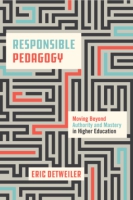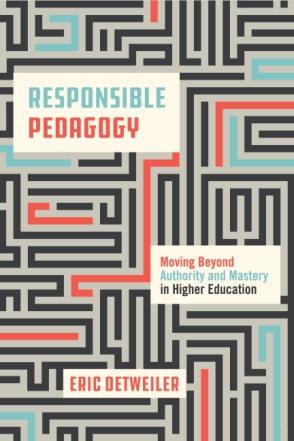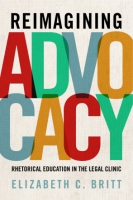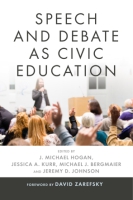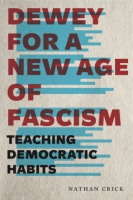Responsible Pedagogy
Moving Beyond Authority and Mastery in Higher Education
Eric Detweiler
“Responsible Pedagogy contributes to interdisciplinary conversations in rhetorical studies and the wider humanities through its methodological interventions as well as its advocacy for necessary changes in teaching practice in writing studies, communication studies, and other fields across the humanities and allied social sciences.”
- Description
- Reviews
- Bio
- Table of Contents
- Sample Chapters
- Subjects
Responsible Pedagogy makes a fresh case for the importance and value of public higher education and the work of teaching. In making this case, Eric Detweiler surveys the history of rhetoric and writing in postsecondary education, looking in particular at the teacher-student relationship. He finds that from the Socratic method to medieval exercises, from MOOCs to remote, asynchronous learning, the balance of authority and agency in the classroom is often precarious. But the problem goes deeper. Underlying both authority and agency is the value of mastery, which the teacher is to impart to the student. It is this emphasis on mastery, Detweiler argues, that distorts the proper relation between the student and teacher, a relationship in which they are responsible for and vulnerable to each other.
Drawing on contemporary ethics, rhetorical theory, and critiques of practices in the online classroom, Detweiler develops a pedagogy of responsibility and shows how it can be applied in writing and communication curricula, assignments, and teacher-student interactions. Rehabilitating the proper role of the teacher, Responsible Pedagogy calls into question our newfound trust in educational technology and points the way to a better, more effective pedagogy.
“Responsible Pedagogy contributes to interdisciplinary conversations in rhetorical studies and the wider humanities through its methodological interventions as well as its advocacy for necessary changes in teaching practice in writing studies, communication studies, and other fields across the humanities and allied social sciences.”
Eric Detweiler is Associate Professor of English at Middle Tennessee State University, where he also directs the Public Writing and Rhetoric program. He runs the podcast Rhetoricity.
Acknowledgements
Introduction
1. Interrupting Socrates
2. An Exercise in Rhetorical Unmastery
3. Online Education, the Limits of Agency, and the Dream of Education Without Responsibility
4. Peer Networks, the Limits of Symmetry, and the Possibilities of Responsible Education
5. From Thesis Statements to Hedge Mazes
Epilogue: On the First Day of Class
Notes
Bibliography
Index
Download a PDF sample chapter here: Introduction
Also of Interest
Mailing List
Subscribe to our mailing list and be notified about new titles, journals and catalogs.
